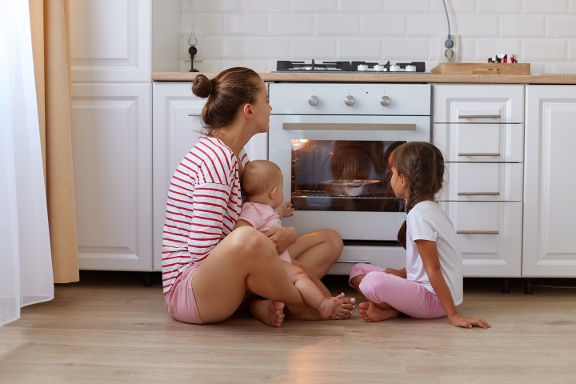5 Safety Tips When Using Natural Gas At Home
One of the most used energy sources in every household is natural gas. Natural gas is a mixture of gases rich in hydrocarbons, like nitrogen, carbon dioxide, and methane. It’s also known for being an efficient and clean fuel source for your home.
As claimed by the U.S. Energy Information Administration, 42% of the residential sector accounted for end-use energy consumption of natural gas in 2021. There are several ways you can use natural gas at home, such as:
- Cooking with stoves, ovens, grills, or cooktops
- Drying your laundry with dryers
- Cooling your home with air conditioning
- Sanitizing dishes or taking hot showers with water heaters
- Staying warm with fireplaces, patio heaters, or pool heaters
With its many uses, it’s no surprise that natural gas is in demand in every home. However, natural gas is a highly flammable material. Even the smallest leak can potentially cause fire-related incidents and gas poisoning when inhaled. Like electricity, gasoline, and other energy sources, natural gas must be used and handled with care.
How to use natural gas safely at home
But don’t fret. Natural gas is safe and an effective fuel source for your home if used correctly. It's important to familiarize yourself with safety tips when using natural gas, as well as educate the rest of your household members about the best practices.
Keep reading to learn more about them.
1. Perform regular maintenance for your natural gas appliancesOne of your core responsibilities is regular maintenance of your natural gas appliances. Keep these appliances regularly serviced by professional natural gas contractors to ensure they continue to operate efficiently. If you have just recently moved in, you can browse online for some of the reputable gas utilities to help you set up your natural gas appliances. Professionals will also be the ones who’ll check and maintain your natural gas appliances from time to time.
Additionally, regular maintenance will help you detect any potential damage or leak on your natural gas appliances, which could be highly dangerous when not fixed at the earliest time possible.
2. Inform everyone of where the natural gas shutoff valve is located
All houses with natural gas appliances will have a shutoff valve installed indoors. As much as possible, everyone in the household must be aware of where this shutoff valve is located and how to turn it off correctly. There may be events or emergencies wherein one of you should shut off the gas immediately. In some cases, you might need to use a wrench handy or screwdriver to turn off the valve. Therefore, it’s best to keep these tools nearby, so anyone can quickly and easily turn off the valve when necessary.
3. Invest in carbon monoxide and natural gas detectors
Carbon monoxide (CO) is a deadly yet odorless, tasteless, and colorless gas that can quickly build up indoors when there’s a gas leak. And because of its invisible characteristics, it’s often hard to distinguish its existence until it’s too late. Over 400 people die annually from accidental carbon monoxide poisoning, and around 50,000 people are taken to emergency rooms.
One way to avoid such a dreadful scenario and notify the household of a carbon monoxide leak or natural gas leak is to install carbon monoxide and gas detectors. These detectors will immediately alert everyone in the house when the CO reaches dangerous levels. On a good note, carbon monoxide poisoning is preventable as long as you properly use your natural gas appliances.
4. Learn how to detect gas leaks
Natural gas leaks rarely happen, especially if you regularly maintain your natural gas appliances. Still, it would be best if everyone knew how to detect a gas leak in case it happens. Some of the signs to help you identify a gas leak may include the following:
- A rotten egg smell
Natural gas lacks both odor and color. Thankfully, gas companies have included odorants to differentiate the smell of natural gas and make it smell like sulfur or rotten egg. So, if you suddenly detect a rotten egg smell floating around the house, call everyone to leave the house immediately and call 911 or your utility provider.
- A hissing sound
When a gas leak occurs, it’ll produce a hissing sound due to its high pressure. If you hear one coming from the kitchen or any nearby gas appliance, notify your utility provider immediately.
- Sudden drying or death of your plants in the house
If your house plants are dying despite proper care and maintenance, it can signify a gas leak. Natural gas prevents plants from absorbing oxygen, causing them to wilt and die.
- Physical symptoms related to gas poisoning
Like plants, people may experience symptoms of gas poisoning, especially if the gas leak hasn’t been detected early enough. Symptoms of natural gas poisoning for humans may include drowsiness, nosebleeds, fatigue, and difficulty breathing. When one or more household members are experiencing such symptoms, go to the nearest hospital and inform your utility provider about a suspected gas leak.
Ignoring gas leakage can be highly dangerous and even deadly when not identified early. So, ensure everyone knows how to detect gas leaks to avoid worse scenarios.
5. Enlighten your kids about natural gas safetyTeaching your kids about home gas safety is crucial. The more aware they are about the risks and dangers of improper usage of natural gas, the more they’ll be mindful to stay away from natural gas appliances and storage. Moreover, teach them about detecting gas leaks and the first steps to take in case of gas exposure.
Key takeaway
Natural gas is a cost-effective, safe, and reliable energy source for your home. But like other energy sources, it should be used and handled cautiously and seriously. Understanding and knowing how to do this will guarantee your family’s safety and yours and prevent risks of natural gas leaks.



